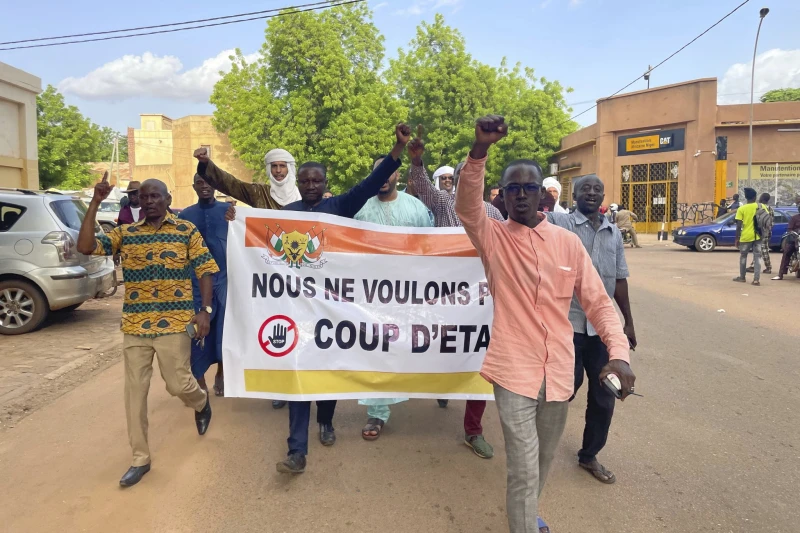The detention of ousted Nigerien President Mohamed Bazoum has garnered international attention and raised concerns over human rights violations. United Nations Secretary-General Antonio Guterres expressed his concern about the conditions of President Bazoum’s detention and called for his immediate release.
In a statement released on Wednesday, Mr. Guterres denounced the “deplorable conditions” in which President Bazoum and his family are being held. The United Nations has learned that the ousted president is being kept isolated by the military who overthrew him from power. Reports have surfaced claiming that he has been surviving on uncooked pasta and rice due to a lack of proper provisions.
Disturbingly, President Bazoum revealed in messages sent to a friend that he has been deprived of all human contact since last Friday, with no one providing him with food or medicine. Antonio Guterres has reiterated his concern for the health and safety of the president and his family. He has called for their immediate and unconditional release, as well as the reinstatement of President Bazoum as head of state.
Since July 26, President Bazoum has been detained along with his wife and son in the presidential palace in Niamey. Their living conditions have been dire, with no access to electricity or running water. The president’s political party confirmed these conditions in a statement, further highlighting the worrisome situation they are facing.
The international community has taken note of President Bazoum’s plight. United States Secretary of State Antony Blinken engaged in discussions with the ousted president on Tuesday regarding recent diplomatic efforts. In a statement, Mr. Blinken emphasized that the safety of President Bazoum and his family is of utmost importance. Following suit, the US State Department has called for their immediate release, adding to the growing chorus of voices demanding justice.
This situation has not only raised human rights concerns but also questions about the stability and democratic progress of Niger. The military’s actions have violated the principles of a peaceful transfer of power, leaving the country in a state of uncertainty and worry.
Various African regional bodies, such as the African Union and the Economic Community of West African States (ECOWAS), have also expressed concern over the developments in Niger. ECOWAS has called for an immediate return to constitutional rule and has threatened sanctions if the situation does not change.
International pressure continues to mount on the military authorities in Niger. Hopes are high that they will heed the calls for justice, release President Bazoum and his family, and work towards restoring stability and democracy in the country.
The world is watching, and it is vital for Niger to address these human rights concerns and uphold the principles of democratic governance. The international community stands united in demanding the release of President Mohamed Bazoum and the restoration of democratic processes in Niger. The immediate future of the nation hangs in the balance, and swift action is needed to prevent further deterioration of the situation.
Image Credit: AP Photo/Sam Mednick




